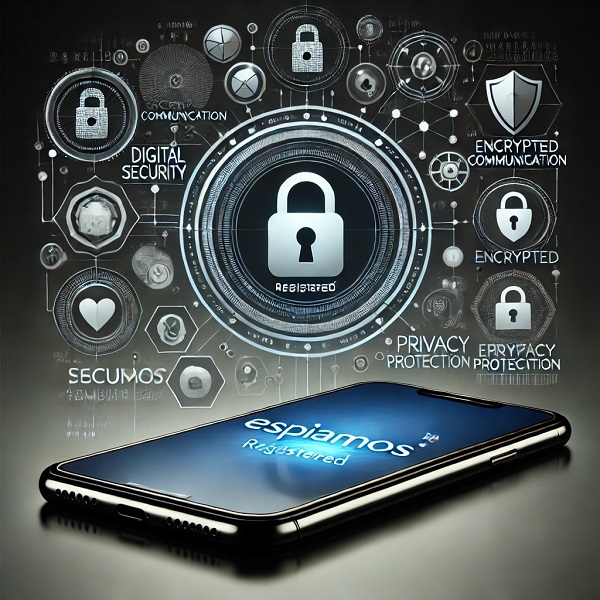Secure phones are designed to protect our communications more efficiently than conventional phones. The need to ensure that our data is not intercepted by third parties has led to an increase in demand for devices with advanced encryption. In this article, we will explore the key differences between these types of phones and why opting for an encrypted phone may be the best decision to protect your privacy.

Table of Contents
- Key Differences Between Secure and Conventional Phones
- Data Security: The Value of Encryption
- Advantages of Choosing a Phone with Encryption
- Conclusion
Key Differences Between Secure and Conventional Phones
While both secure and conventional phones may look similar at first glance, there are important differences that directly affect the security and privacy of communications. First, conventional phones rely on third-party services, such as Google or Apple, to manage their operating systems and applications. This means that a large amount of personal data can be collected and stored on servers that are not always under your control.
Encrypted phones , on the other hand, are designed to offer complete control over your data. These devices eliminate the dependency on external services that can access your information, using more secure operating systems that prioritize privacy. In general, messaging and calling apps on conventional phones do not offer end-to-end encryption by default, which increases the risk of third parties intercepting your communications.
Data Security: The Value of Encryption
Encryption is the key to protecting your data and communications on a secure phone. On conventional phones, encryption is often not robust enough or is only applied in certain cases, such as with specific apps. This leaves your data vulnerable to hacker attacks, information theft, or even unauthorized access by companies and service providers.
On the other hand, encrypted phones employ end-to-end encryption to ensure that all your communications (calls, messages, and files) are protected. This means that only the sender and receiver have access to the data, eliminating the possibility of third parties intercepting and decrypting the information. Additionally, many secure phones feature advanced permission management technologies, ensuring that no app can access critical device functions without your explicit consent.
Advantages of Choosing a Phone with Encryption
Secure phones offer a wide range of advantages that clearly differentiate them from conventional phones. Among the most notable is advanced privacy protection . Unlike regular phones, encrypted devices do not collect or store information on third-party servers. This reduces the risk of data leaks and unauthorized access by companies or cybercriminals.
Another advantage is the ability to make communications completely private. Whether you're making calls, sending messages, or sharing files, Encrypted phones ensure that no one else can access your content. This level of privacy is essential for professionals who handle sensitive information, such as lawyers, journalists, or executives looking to protect their business dealings.
Additionally, secure phones are often equipped with additional features that enhance their functionality without compromising security. For example, they may include tracker-blocking tools, advanced email protection through encryption, and the ability to manage secure connections via VPN networks. This ensures that both your browsing and communications are safe, even on public networks.
Usability and Security
Despite what many might think, an encrypted phone does not compromise the usability of the device. In fact, modern secure phones are designed to offer a smooth and simple user experience, similar to that of any conventional phone. However, they have the added value of robust security measures that protect all aspects of their operation.
For example, encrypted phones allow the use of popular apps like instant messaging and email, as long as these tools have the right technology to protect your data. Apps like Signal, Telegram or secure emails like ProtonMail are examples of solutions you can use on these devices, ensuring the privacy of your communications.
Secure phones also support VPN networks that protect your browsing, ensuring that no third party can track your online activity. This is crucial when using public Wi-Fi or any connection that may not be entirely reliable. In this way, encrypted phones allow you to browse the internet anonymously and without leaving a trace.
Conclusion
When comparing secure phones to conventional ones, it’s clear that privacy and data protection are critical issues in today’s digital age. Encrypted phones not only offer an additional barrier against potential unauthorized access, but also allow for safer browsing and the peace of mind that your communications are protected by end-to-end encryption .
While conventional phones are suitable for everyday use, they do not offer the same level of security and protection as devices specifically designed to maintain privacy. Professionals who handle sensitive information, such as businesspeople, journalists or lawyers, as well as users concerned about their privacy, should seriously consider opting for a secure phone that guarantees the integrity of their communications and personal data.
In the end, choosing a phone with encryption is not only an investment in technology, but also a crucial measure to safeguard your information in an increasingly connected world that is vulnerable to cyberattacks. With a secure phone, you can ensure that all your digital interactions are private and secure.






 WhatsApp
WhatsApp Telegram
Telegram


